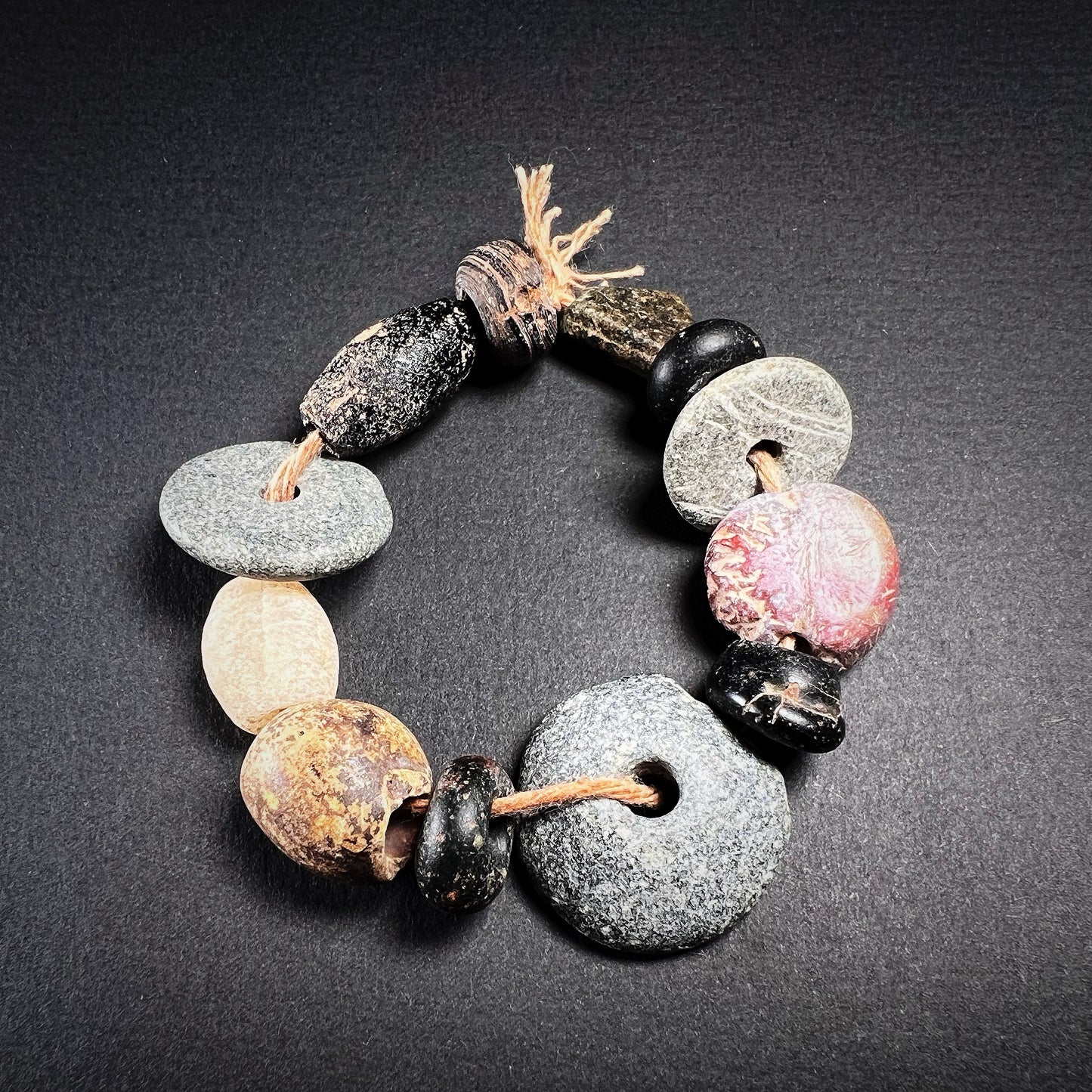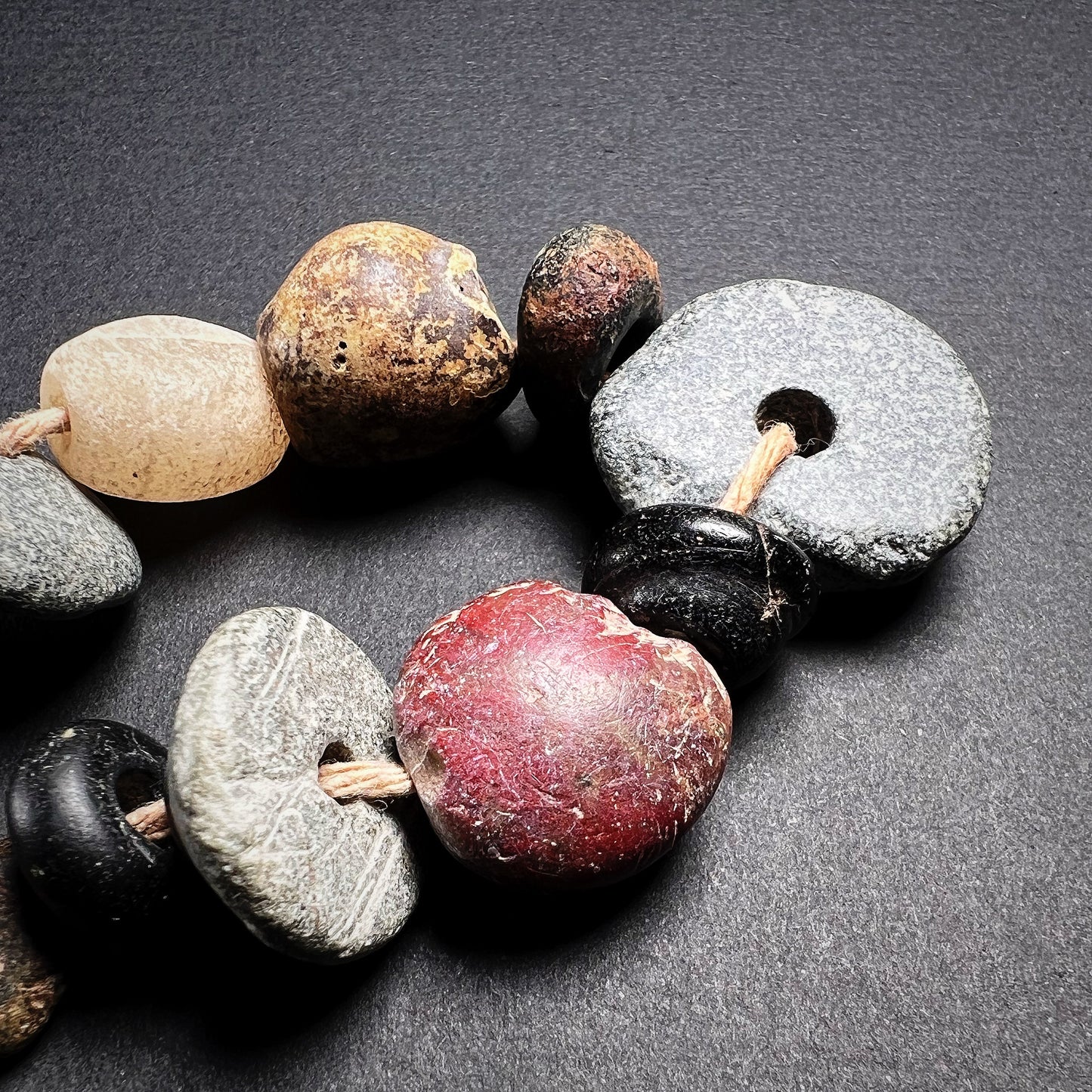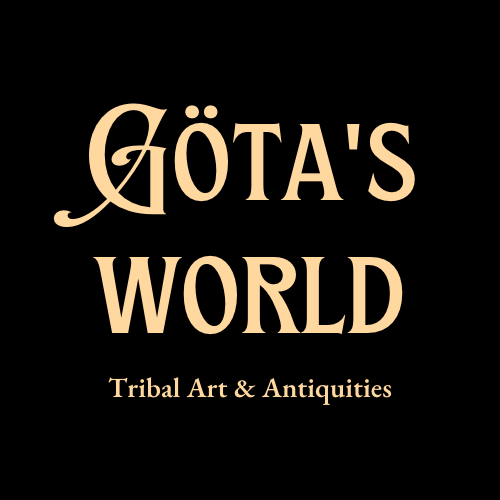Egyptian Stone Beads, Spindle Whorls, and Amulets
Egyptian Stone Beads, Spindle Whorls, and Amulets
Couldn't load pickup availability
The New Kingdom of Egypt, c. 1550–1069 BC, Egypt
An absolutely fascinating and visually captivating collection of ancient beads, spindle whorls, and amulets, all beautifully restrung for display. This vibrant assemblage is composed of core glass, faience, pottery, and a rich variety of semi-precious stones, including carnelian, agate, and alabaster.
Originally part of the intricate personal adornment and daily ritual life of ancient Egyptians, these components served both decorative and symbolic purposes. The spindle whorls reflect domestic and textile practices, while the amulets—often shaped as wedjat eyes, scarabs, or divine figures—offered spiritual protection and blessings.
The use of Egyptian faience, with its iconic blue-green glaze, reflects a deep cultural association with rebirth, the Nile, and the celestial realm. Together, these elements provide a tangible connection to the craftsmanship, beliefs, and aesthetics of New Kingdom Egypt.
A rare and evocative set, ideal for collectors and connoisseurs of ancient art.
Good condition. Surface wear and abrasions commensurate with age, nicks and chip. 12 unique beads and amulets. Collected in the early 20th century. Cotton string is modern. Individual bead size varies from 0,5cm to 1,7cm.
Provenance: Dutch private collection.
References and further reading:
Egyptian Faiance: Technology and Production, Carolyn Riccardelli, Department of Objects Conservation, December 2017, The Metropolitan Museum of Art.
Ancient Technology: Faiance Beads in the Garstang Museum, Garstang Museum of Archaeology.
Gifts of the Nile: Ancient Egyptian Faiance, Friedman, Florence Dunn, Thames and Hudson, London, 1998.


-
Shipping
The shipment will be prepared in the course of 3-5 days and dispatched via Posti Group Oyj or purchased item(s) can be picked up from our shop during the store's opening hours (Tarkk’ampujankatu 4, 00140, Helsinki, Finland). Within the Finland, all items are shipped via Posti Group Oyj unless otherwise requested. We pack the items carefully and mainly in recycled materials because we want to save nature. You will receive the tracking number for your items by e-mail.
-
Returns
Returns and exchange will be accepted within fourteen days (14) of receipt at the purchaser’s cost to include freight and packaging. Items must be returned in the same condition as when they were shipped, and will not be accepted if damaged or altered in any way. Please inform us via email (info@gotanmaailma.fi) or by calling +358408408352 before sending. We do not accept returns more than 14 days after delivery.


